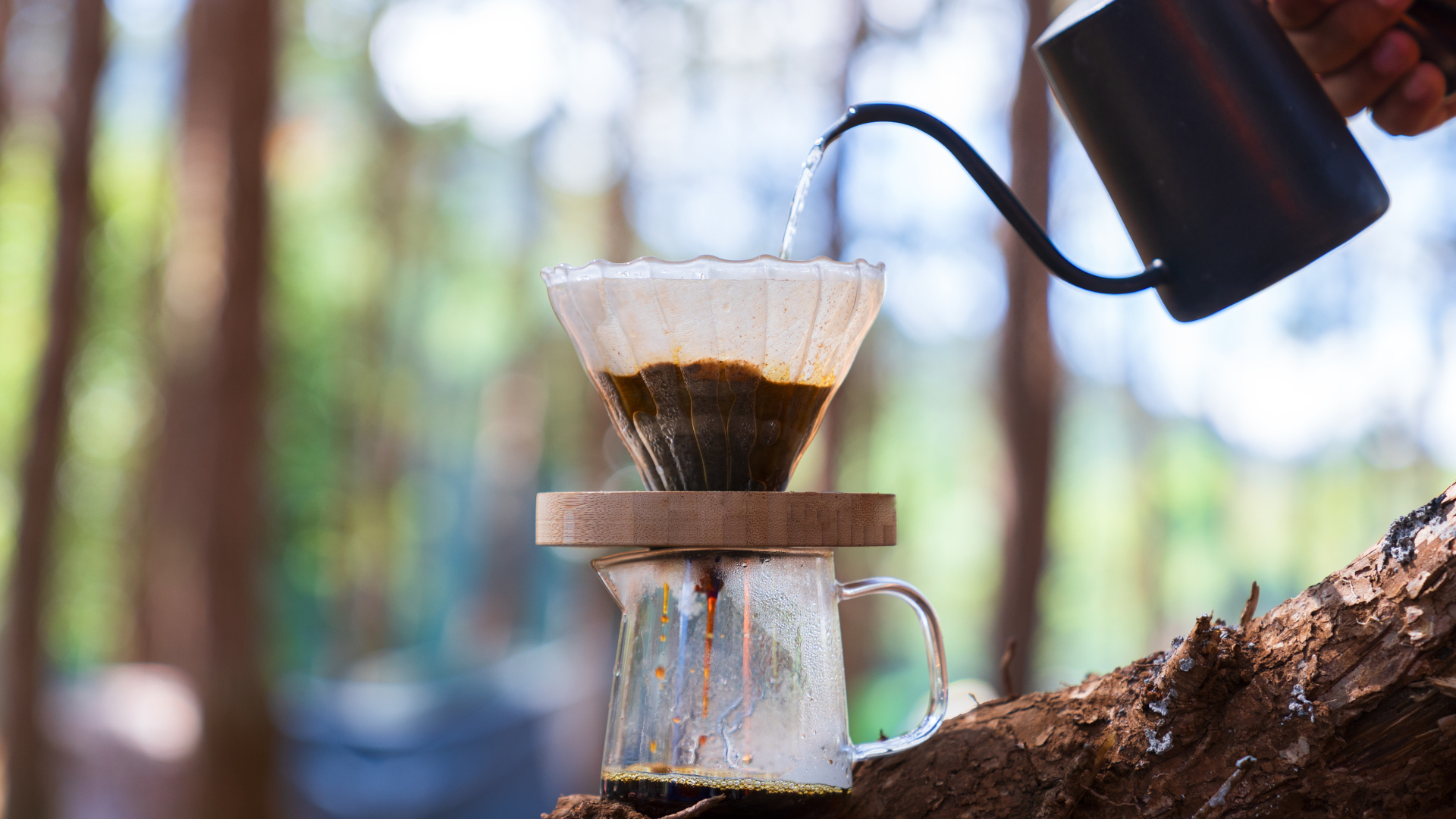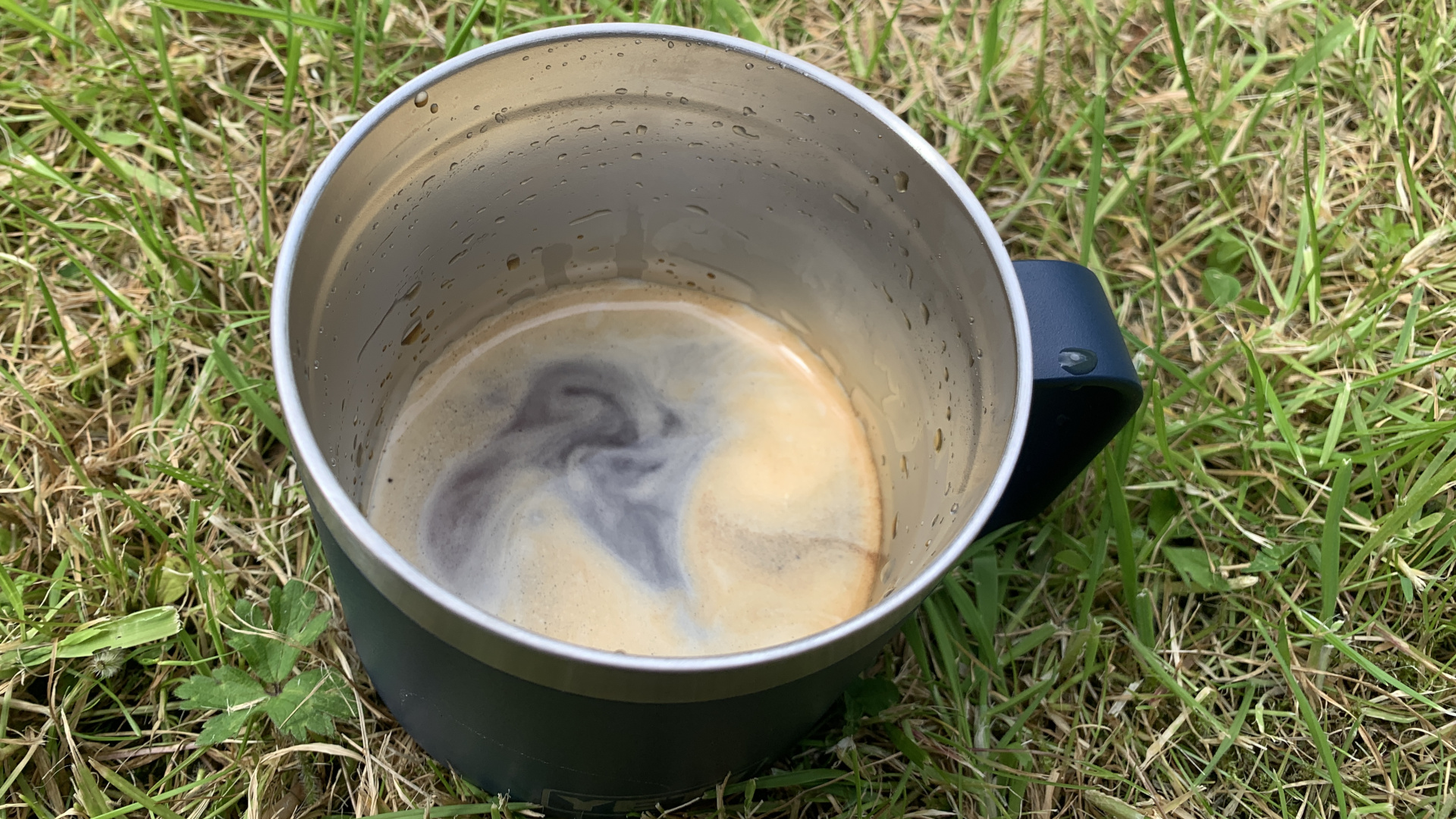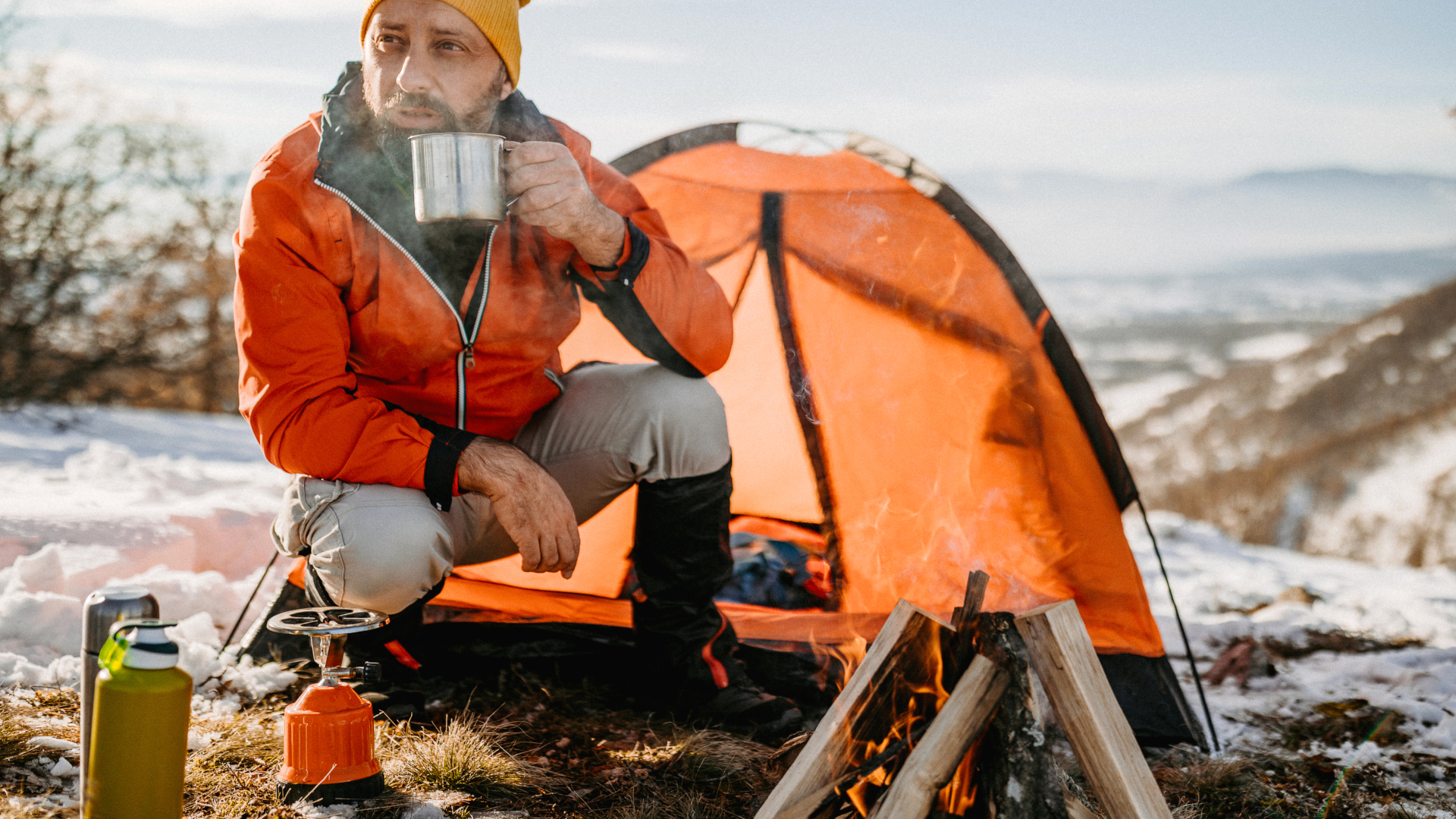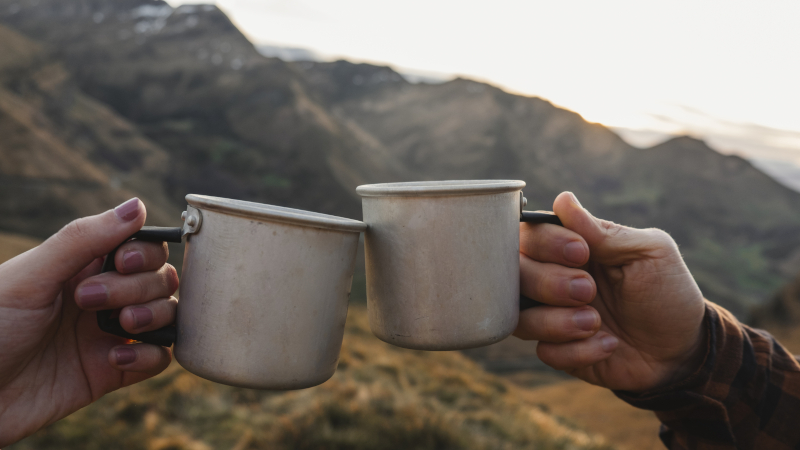How to dispose of coffee grounds at camp
Can’t break down your tent till you’ve had your morning cup of Joe? Here’s what to do with your spent grounds to make sure you don’t make a mark on nature

All the latest inspiration, tips and guides to help you plan your next Advnture!
You are now subscribed
Your newsletter sign-up was successful
Few things bring me more pleasure than my morning cup of coffee at camp. When my campmates are still snug in their sleeping bags and the sun hasn’t burned off the morning chill yet, I love gazing out over a peaceful valley with my hands wrapped around my steaming camping mug, breathing in the bittersweet aroma of coffee.
Whether I’m car camping or backpacking, I rarely go camping without a coffee maker. If I want to travel light, I bring my GSI Outdoors Coffee Rocket for a low maintenance morning fix. For the best coffee, it’s always my AeroPress Go and if I’m feeling fancy, my GSI Outdoors MiniEspresso Set delivers barista-level espresso in the wild.
If you’re anything like me, following your morning java jolt, you’ll be hit with a bit of a conundrum – how do you dispose of your coffee grounds when you’re camping?

Can you dump coffee grounds at camp?
Many of us probably assume that, because coffee grounds are natural and biodegradable, it’s okay to dump them in the nearby undergrowth. People also assume this about those orange peels they toss over their shoulder while hiking, and in both cases, this is incorrect. First of all, unless you’re camping in Sumatra or Yemen, coffee is not native to the place where you are pitching your tent.
Furthermore, used (or spent) coffee grounds are food matter, and as such they will attract insects and other animals to your campsite. Used grounds still contain caffeine according to Two Chimps Coffee, which is unlikely to be helpful for the local coyote population. Basically, spent coffee grounds are certainly not the native food of any wildlife you’re likely to encounter, nor do you want to be attracting ants, raccoons or bears to your pitch.
Now you might be thinking here that you compost coffee grounds at home, which is great, since it provides a small amount of nutrition to plants, improves soil quality and kills slugs, but you don’t want to go killing off all the slugs in nature and honestly, it’s really not your job to go fertilizing the land in the backcountry.
Your job is to leave the backcountry exactly as you found it, as in Leave No Trace. One Reddit user put this really well in a thread on the topic of what to do with coffee grounds:
All the latest inspiration, tips and guides to help you plan your next Advnture!
“Was the campsite covered in coffee grounds when you got there? No? Well… let’s keep it that way. Can you imagine a scenario where you would want someone else’s food scraps in your campsite when you got there? No? Then don’t do it to the people who camp there after you!”

Can you burn coffee grounds at camp?
Okay, so no dumping your grounds in the long grass – what about throwing them in the campfire? This is a common method of repelling mosquitoes, after all, though the science is shaky on the method and a 2015 study suggests this may only apply to pregnant females, and it’s generally thought that the grounds need to be dried before burning anyway.
Burning grounds is a common means of disposal at camp, but whether or not it’s harmful to the environment or to humans is still up for debate. Research such as a 2020 study shows that commercial roasting of coffee beans can negatively impact the respiratory health of workers, causing bronchiolitis. Whether burning spent grounds has the same effect isn’t known, but it’s important to note that if and when you’re having a campfire, you want to use fuel that’s as clean as possible, such as seasoned wood or coffee ground logs.
Wait, coffee ground logs? If coffee ground logs, such as these ones by Pine Mountain, use recycled coffee grounds to start a fire, why can’t you just go directly from cup to fire pit and cut out the middle man? Coffee ground logs are a great, eco-friendly kindling source, but in this case the grounds have been dried and processed first, making excellent, clean-burning fuel. Your soggy grounds won’t make great fuel, and most likely remnants will remain in the firepit after you pack up and leave.
In addition, I don’t know about you but in most cases, I’m quite unlikely to have a campfire in the morning. It’s not unheard of, but even if I’m not backpacking and moving on after breakfast, I tend to save the fire for evening time. Even if I’m going to be away hiking all day and returning to the same campsite that night, I wouldn’t want to leave my coffee grounds out in case they attract insects or animals.

So how do you deal with coffee grounds at camp?
If I make a pot of coffee at camp, I’m left with at least a scoop of wet grounds. How do I dispose of them? I adhere to the principles of Leave No Trace and pack them out, of course. If you’re attached to drinking freshly brewed coffee at camp, your best means of disposal is to either leave them in the pot if you’re just having one pour, or transport them carefully into a sealable plastic bag, bring them home with you and put them in the compost.
If this is all sounding like an awful lot of work and you’re really wishing I had come up with a better solution, there actually is one more possibility – try instant coffee for camping and do away with grounds altogether.
I know, I know. If you’re a coffee snob, you’re wrinkling your nose in disgust here, but from one snob to another, trust me: instant coffee has come a long way since the 1980s. There are loads of great brands out there that are built for campers such as Waka Premium Instant Coffee, which comes in single serve packets and a choice of light, medium and dark roast. You get a morning jolt of java that’s pretty tasty to boot, the local wildlife population remains in its natural, uncaffeinated state, and the next campers to this site don’t arrive to a clean spot to lay their head.
Julia Clarke is a staff writer for Advnture.com and the author of the book Restorative Yoga for Beginners. She loves to explore mountains on foot, bike, skis and belay and then recover on the the yoga mat. Julia graduated with a degree in journalism in 2004 and spent eight years working as a radio presenter in Kansas City, Vermont, Boston and New York City before discovering the joys of the Rocky Mountains. She then detoured west to Colorado and enjoyed 11 years teaching yoga in Vail before returning to her hometown of Glasgow, Scotland in 2020 to focus on family and writing.

